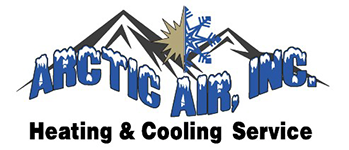Navigating through the intricacies of HVAC replacements might appear challenging, but with the guidance of our seasoned professionals, who bring over 20 years of experience in HVAC solutions, it becomes a manageable and stress-free process. Knowing what to expect when replacing your HVAC unit can streamline the process, save you time, and ensure a comfortable environment for your family or business. The journey involves understanding the steps involved, the costs, potential energy savings, and how to choose a reliable service provider.
Assessing Your HVAC Needs
An essential first step in replacing your HVAC unit is assessing your needs. This involves understanding the size of your space, the climate of your area, and the specific heating and cooling requirements of your building. You can rely on professional evaluation services to ensure that you’re matched with a unit that perfectly suits your needs.
- Choosing a Unit – Choosing the right HVAC unit is a critical decision. Factors like energy efficiency, cost, brand reputation, and unit size come into play. Experienced technicians can guide you through this process, ensuring you make an informed decision that suits your budget and needs.
- Energy Efficiency – Newer HVAC units tend to be more energy-efficient than older ones. They consume less energy, thus reducing your energy bills. Look for a unit with a high SEER (Seasonal Energy Efficiency Ratio) rating, which indicates its energy efficiency.
- Cost – HVAC units can range dramatically in price, depending on the brand, size, and features. It’s important to consider both the upfront cost and the long-term operational costs when choosing a unit.
- Brand Reputation – Some brands are known for their durability, performance, and excellent customer service. Researching different brands and reading reviews can help you make an informed decision.
- Size of Unit – The size of your HVAC unit should be appropriate for the size of your home or business. A unit that’s too small won’t be able to heat or cool your space efficiently, while a unit that’s too large can lead to higher energy costs and wear out more quickly.
Smart Control Features
Many of today’s HVAC units come with advanced smart technology that offers increased convenience and energy efficiency. Here’s what you can expect:
- Remote Control – Many modern HVAC systems come with remote control functionality, allowing you to adjust the temperature from anywhere using your smartphone or a computer.
- Smart Thermostats – These devices learn your schedule and preferences over time and adjust the temperature automatically, ensuring optimal comfort while saving energy.
- Voice Control – Some HVAC systems can be integrated with smart home devices, enabling voice control through systems like Amazon Alexa or Google Assistant.
- Energy Usage Reports – Smart HVAC units can provide detailed energy usage reports, helping you understand your energy consumption patterns and make changes if necessary.
- Geofencing – This feature uses your smartphone’s location to determine whether you’re home or away and adjusts the temperature accordingly.
Installation Process
The installation process typically involves removing the old unit, preparing the space, and installing the new one. This process can take anywhere from a few hours to a couple of days, depending on the complexity of the job. The aim is always to ensure a seamless installation process with minimal disruption to your daily routine.
Post-Installation Support
Once your new HVAC unit is installed, you can expect post-installation support. This includes explaining how to use the unit, maintaining it, and providing ongoing service support. Excellent customer service ensures that you’re not left to figure it out on your own after your unit is installed.
Additional Benefits of HVAC Replacement
Apart from energy savings and improved heating and cooling performance, replacing your HVAC unit can offer a host of additional benefits.
Improved Indoor Air Quality
Indoor air quality is an essential aspect of your family’s health and comfort. Older HVAC units may struggle to filter out dust, pollen, and other pollutants from the air effectively. In contrast, a new HVAC unit, equipped with advanced filters and ventilation mechanisms, can dramatically improve your indoor air quality, contributing to better health and comfort.
Reduced Repair Costs
An aging HVAC system can be a constant source of stress and financial drain with frequent repairs. Replacing your unit can provide a respite from incessant repair costs. While a new unit may require a larger initial investment, it will likely save you money in the long term by reducing the need for regular maintenance and repairs.
Increased Property Value
If you’re considering selling your home in the future, a new HVAC unit could increase its value. Potential buyers often look for homes that won’t require significant upgrades or repairs, and a new HVAC system could be a strong selling point.
Quieter Operation
Older HVAC units can often be noisy, which can be particularly disruptive if you’re working from home or spending significant time indoors. New models operate more quietly, contributing to a more peaceful home environment.
Replacing your HVAC unit is more than just an exchange of old equipment for new. It’s a significant home improvement that can enhance your comfort, improve your health, save you money, and even increase the value of your home. Arctic Air Inc., with our exceptional track record in the Nampa, Caldwell, and Meridian, Idaho area, can guide you through the entire process, ensuring a seamless transition to a superior HVAC system.
